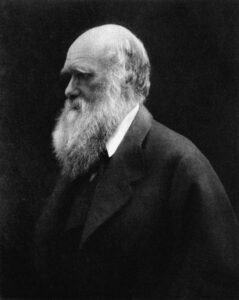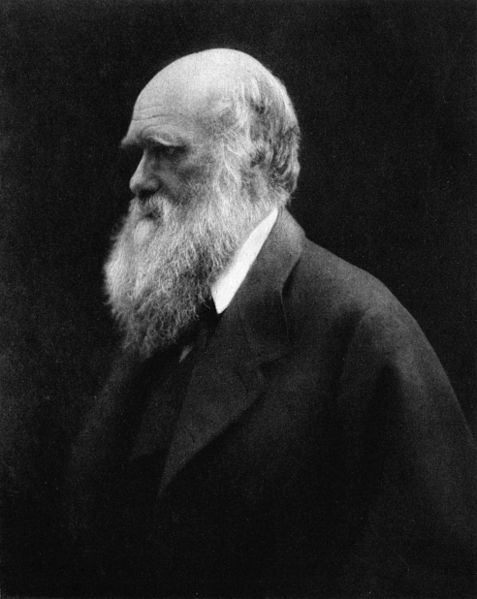After my post a couple of weeks ago about Not Being a Dick, I got into a spirited debate with a colleague on Facebook with regards to skepticism and evolution. He challenged me to answer these 15 “unanswerable” questions for evolutionists which were devised by the Creation Ministries International website. I was unable to devote the time to properly answer the questions at the time and so I have decided to post my response in the form of a separate article. I’ll admit some of the questions I was unable to answer, partly because currently science does not have the answers, and partly because they are beyond my own personal knowledge. But here goes.

1. How did life with specifications for hundreds of proteins originate just by chemistry without intelligent design?
Insert obligatory “That’s not evolution, that’s abiogenesis” comment.
Truth of the matter is we don’t know yet. There are a number of theories and there have been promising laboratory studies done which have successfully produced organic molecules like proteins from inorganic chemicals.
2. How did the DNA code originate ?
DNA developed from a simpler, self-replicating complex organic chemicals, probably RNA, which in turn developed from simpler organic chemicals such as amino acids.
3. How could copying errors (mutations) create 3 billion letters of DNA instructions to change a microbe into a microbiologist?
Billions of years of selection. Genes are replicated, mutated, recombined, replicated again. Successful replicators survive, unsuccessful mutations die out. Given enough time, and enough generations and enough selections, you have human beings. Any decent book on evolution will explain this better.
4. Why is natural selection taught as ‘evolution’ as if it explains the origin of the diversity of life?
This is a terribly worded question. Natural selection never tries to explain the origin of life. Natural selection is about the origin of species, not life itself. The origin of life is a completely different field of research, for which there are several promising theories. Diversity on the other hand is one of the natural byproducts of selection. Changes in environment and food chain drive selection in a particular direction and offshoots in selection produce speciation.
5. How did new biochemical pathways, which involve multiple enzymes working together in sequence, originate?
From complex organic chemistry over billions of years.
6. Living things look like they were designed, so how do evolutionists know that they were not designed?
First, define what “looked like they were designed” means. I look at the biology of certain animals and I can’t help but think that if someone designed this they did a pretty crappy job. The recurrent laryngeal nerve for example, or the female human pelvis (clearly not designed for ease of childbirth), the pharynx, or the defective gene in humans for synthesizing Vit C. “Designed” is simply a term used by creationists to try and crowbar God into the equation. I can tell you, if I was an omnipotent creator, I would have taken my time and come up with something better than the scrotum (probably involving confining the testes to the body cavity, possibly with some sort of liquid cooling system to maintain the optimum temperature).
Organisms have adapted the way they have due to their environment, and natural selection rewards successful “designs”. Sometimes these “designs” will come with flaws which are often an artifact of the evolutionary path it took to reach this point. Creationists will try to come up with explanations for these flaws, saying “its intelligent design, not optimal design” or trying to justify them with faulty evidence. Often in the end they resort to the old “God works in mysterious ways” argument.
7. How did multi-cellular life originate?
We don’t know yet, but probably from single cellular life. There are many examples of individual cells operating as a single organism, such as sponges and slime molds. These colonies can form a membrane around them, creating a single organism, made up of multiple cells. This processes has been reproduced in a lab with yeasts.
8. How did sex originate?
This is one of those ones that is still under debate. There are several theories around, however I am not knowledgeable enough to go into them. Any decent modern evolution book will contain some answers.
9. Why are the (expected) countless millions of transitional fossils missing?
First off there are a hell of a lot of transitional fossils. The fact that there are some gaps is merely indicative of how rare the process of fossilisation actually is. It requires a very special set of circumstances in order for remains to be fossilised, the vast majority of remains are destroyed by decomposition, weather, scavengers, and other geological processes before they get a chance to be fossilised.
10. How do ‘living fossils’ remain unchanged over supposed hundreds of millions of years?
So called living fossils are merely creatures who have adapted well to conditions which have not changed in millions of years. For example crocodiles and alligators developed in swamps and marshlands, similar to where they live today. Subsequent mutations may change them superficially, but as their environment remains constant, there is nothing driving selection which will alter their physiology.
11. How did blind chemistry create mind/intelligence, meaning, altruism and morality?
Altruism and morality come from the development of animals as social beings. They can be seen demonstrated in the communities of apes, and even in certain types of social insects. In a social community, traits such as greed, selfishness, violence etc are not favourable. Morality as defined by humans comes from an innate knowledge stemming from our earliest days as social beings.
Mind and intelligence are very ephemeral subjects, without any concrete definition. Our increased brainpower and ability to reason is the result of changes to our environment and social structure over several million years.
Meaning is a philosophical question, and really has nothing to do with science.
12. Why is evolutionary ‘just-so’ story-telling tolerated as ‘science’?
Because it has evidence to back it up. The evidence is consistent both internally and when combined with other sciences (evolutionary timeframes fit in with what we know about the age of the solar system, for example). Creation is by its very definition a “just-so story”, as it provides an unverifiable, non-evidence based explanation for our origin.
13. Where are the scientific breakthroughs due to evolution?
Understanding where we come from is one of the most important questions mankind has ever tackled. The original concept of evolution was a huge breakthrough in its time, and remains one of the greatest ideas in human history. Just because it hasn’t produced fantastic machines or wonderous miracle drugs does not mean that its not worth studying, and certainly does not make it false.
14. Why is evolution, a theory about history, taught as if it is the same as the operational science?
Operational science is a buzz word invented by creationists to define aspects of science with which they have no problem. In reality no such differentiation exists. Many sciences involve studying historical data, it doesn’t make them any less scientific. Evidence gathered after the fact is still evidence. Our knowledge is based on observable effects; speciation has been observed in a lab, organic chemicals have been observed developing into complex amino acid chains in a beaker, radiometric dating has been precisely calculated and calibrated using mulitple methods and shown to be consistent and accurate, molecular biology provides evidence of genetic evolution.
15. Why is a fundamentally religious idea, a dogmatic belief system that fails to explain the evidence, taught in science classes?
Nice leading question. Evolution is not a religious idea. Evolution is based on evidence. Multiple dating mechanisms all produce consistent results when applied to dating fossil evidence. Molecular biology provides evidence which links species to one another through DNA sequences. Evolution is the best explanation that we have to explain how life developed to the point that it is at today. Intelligent Design (ie Creation – you’re not fooling anybody with that by the way), an idea based in the three thousand year old writings of Jewish nomads, doesn’t come close to having the same level of evidence supporting it, and has absolutely no place in a science class.
As I stated in the introduction, I obviously haven’t answered all the questions. This is because there are some details of evolution and abiogenesis that science simply doesn’t know yet, and even more than is outside of my own knowledge. The creationists know this and try to use these examples as proof that all evolutionary science is false. When in reality, we just haven’t found the proof yet. Science never claimed to know everything, there are certain aspects of our universe which scientists acknowledge are mysteries *. The goal is to gather evidence, test hypotheses, reject faulty ideas, and eventually come to a better understanding of how things work. Creationists tend to work the other way; “This science doesn’t match our theory of creation, therefore the science must be wrong” and then try to find holes in the existing knowledge to back up their beliefs.
In the end, “we don’t know” is an infinitely more scientific answer than “God did it”.
I am clearly not an expert on these matters. There are better and more complete answers to these questions to be found in the scientific literature on evolution, and in the books of evolutionary biologists. I am simply providing my rudimentary explanations where I can, and admitting ignorance where the answers are beyond my knowledge.
To misquote Socrates, “True wisdom consists of knowing that you know nothing”. Or to put it another way “The fool doth think he is wise, but the wise man knows himself to be a fool.’” (Shakespeare – As you like it)
* Gravity for one. Physicists are currently unable to explain why the force of gravity is so incredibly weak when compared to the other fundamental forces. There are theories of course, but the fact that we can’t explain it yet, does not mean that the theory of gravity is false, it’s just incomplete, and we’ll figure it out eventually.

Leave a Reply